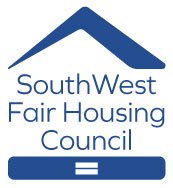The Fair Housing Act: A Historical and Enduring Anti-Discriminatory Powerhouse
1968: A Significant Stride Toward Equality Amidst Tragedy
On April 11, 1968, President Lyndon B. Johnson signed the Fair Housing Act into law, amending the monumental Civil Rights Act of 1964. This groundbreaking legislation emerged as a beacon of hope, prohibiting discrimination in the sale, rental, and financing of housing based on race, color, religion, national origin, and sex [1]. The Act's inception was not merely legislative progress but a testament to the invincible spirit of the civil rights movement, especially poignant in the tragic aftermath of Martin Luther King Jr.'s assassination [2]. King's human rights advocacy underscored a pivotal moment in American history, galvanizing a nation towards greater equality.
1974: Amending Against Sexism
By 1974, it became evident that the journey towards fair housing was far from complete. An amendment was introduced to the Act, adding sex as a protected category against discrimination. This amendment not only broadened the spectrum of protection but also empowered the Department of Housing and Urban Development (HUD) with new authority. HUD was now vested with the capability to initiate investigations, mediate between aggrieved parties, and even propel civil actions into federal court on behalf of victims. This enhanced role signified a deeper commitment to dismantling housing discrimination [3].
1988: The Expansion of Protections
Fourteen years later, another significant amendment was enacted, further solidifying the Act's stance against discrimination. This time, protections were extended to prohibit discrimination based on disability and familial status, recognizing the presence of children under 18 within a household as a category worthy of protection. The amendment also saw an uptick in the penalties for those found in violation, a clear message of the increasing seriousness with which housing discrimination was now viewed. Furthermore, it expanded the Justice Department's enforcement role in resolving complaints and ensuring a more robust mechanism for justice.
2016: Keeping Criminal Background Checks in Check
Fast forward to 2016, and the landscape of housing discrimination has evolved again, necessitating an update to the Fair Housing Act's interpretation. The HUD's Office of General Counsel issued guidance on the application of the Act's standards concerning the use of criminal records by housing providers. This guidance was pivotal, illuminating how reliance on criminal history information could inadvertently result in discrimination, under the frameworks of disparate impact or treatment [5]. This nuanced approach highlighted the Act's adaptability to contemporary issues, ensuring its relevance and protective reach extended into the modern era.
2021: LGBT Inclusivity
And in 2021, in the wake of the Supreme Court's landmark decision in Bostock v. Clayton County (2020) and an executive order by President Biden again propelled the Act further by preventing and combating discrimination on the basis of gender identity or sexual orientation [6]. HUD's announcement that the Act would cover discrimination based on sexual orientation and gender identity marked a historic moment in the journey towards equality. This decision was not just a step forward in housing rights; it was a leap towards broader inclusivity, affirming the Act's commitment to protecting the rights of all individuals, regardless of how they identify or who they love [6].
The Fair Housing Act: A Testament to The Enduring Struggle for Equity in The United States.
Each amendment and guidance issued under the Act has responded to the changing dynamics of our society and the ongoing fight against discrimination. As we look ahead, we honor the Act's adaptability to broaden its scope of protection to continue serving as a beacon of hope for progress and a more inclusive society where everyone is free from housing discrimination. If you feel you have experienced housing discrimination click contact button below.

